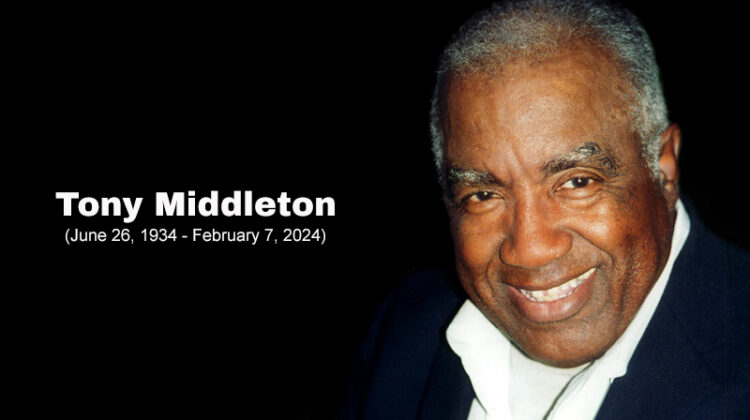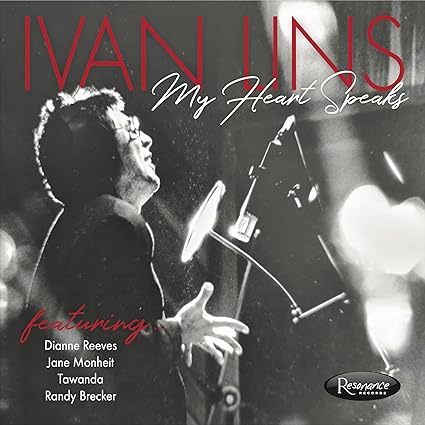Most often, Ivan Lins’s heart speaks through the voices of others.
Lins considers himself, first and foremost, to be a song writer who creates melodies originating from the quiet music within his heart. Indeed, he reports that he has written hundreds of songs. Only a fraction of those songs has been recorded. An even smaller fraction of them, exemplified by “Love Dance” or “I’m Not Alone,” has achieved such worldwide popularity.
Lins begrudgingly began to sing too when a record producer bribed him with drink to do so. Everyone discovered thereafter that Lins voice is distinctive. It’s his alone. He sings without drama or excessive flourishes, and with his Portuguese accent, as if his voice still emerges diffidently from a reluctance that remains.
Due to the global popularity of the bossa nova in the sixties, the ingeniousness of Brazilian song writers achieved widely broadcasted, and much deserved, recognition. What other composers would have written songs with naturalism, love themes, sadness, social conscience, and wittiness like “Travessia,” “Desafinado,” “Começar de Novo,” or “Canto de Ossanha”? Immeasurable would have been our loss without the global recognition of Brazilian song writers’ contributions.
Ever an admirer, George Klabin proposed to 78-year-old Ivan Lins that Resonance Records be allowed to produce an album of his songs. Lins put his trust in Klabin to bring together accomplished talents for a fond celebration of his compositions. And did he ever! True to Resonance Records’s reputation for creating elaborate productions expressing unabashed admiration for the artists that the label represents, Klabin exceeded expectations. With My Heart Speaks, he documented Lins’s works with full orchestral arrangements, a separate rhythm section, new English lyrics, extensive and knowledgeable liner notes, and outstanding production values. No doubt, Lins was not only impressed, but flattered by, the results.
Rather than re-recording his most famous melodies, Klabin chose songs that represent evolving phases of Lins’s artistic development.
Listeners most often associate Lins’s music with melodies about the nature of love. The inclusion of “I’m Not Alone” (“Anjo de Mim,” or “Angel of Me”), with English lyrics by Will Jennings, represents the unembellished directness of Lins’s stories about attraction. And yet, the song, despite its statement of love, suggests melancholy. Emerging talent Tawanda sings with, naturally, heartfelt emotion as the compounding lyrics lead to its conclusion of loneliness being assuaged by, but not eliminated by, memory.
“The Heart Speaks” (“Antes e Depois” or “Before and After”)—whose English lyrics were written by Jane Monheit, an interpreter of his music whom Lins respects—describes love lost, not for unspoken reasons as in “I’m Not Alone,” but through intentional rejection. Songstress supreme Dianne Reeves sings about a person’s aging, regret for a mistake, and advice for others to “hold on to the love that you find.”
As a result of his extensive knowledge of Lins’s repertoire, Klabin was aware that Lins wrote songs about other subjects besides love. The constant in Lins’s music, though—always its origin—is his heart. “Corpos” (“Bodies”), written in 1975, describes Lins and co-writer Vitor Martins’s anguish over the vanished victims of political violence during Ernesto Geisel’s military regime: “Search everywhere / In the mud, in the slime… / There are more bodies.” Lins’s aching alarm for the losses comes across when he sings the lyrics himself. Cleverly, Lins wrote “Corpos” as a lilting waltz with a memorable melody for rhythmic appeal to the listener.
Lins and Klabin chose another song representative of the songwriter’s understanding of matters of the heart: “E Isso Acontece” (“And This Happens”). As an example of the intended healing power of music, Lins wrote the song—including, for a change, the lyrics—as a means of consolation for a dejected producer whose wife left him. “It’s pain that passes…not for free, but it passes!” He sings in rubato fashion with as if pausing to stress each empathetic point, each phrase being a distinct thought embellished by Josh Nelson’s graceful accompaniment as a contribution to Lins’s intent to comfort.
In addition to being honored to write the English lyrics to some of Lins’s songs, Monheit sings “Rio,” a slowly descriptive samba about Rio de Janeiro’s natural environment of birds and trees that evokes feelings of longing and sadness.
In addition to Monheit, Reeves, and Tawanda, Klabin recruited Randy Brecker, whose affecting muted solo recalls on “Missing Miles” another artist of progressive harmonies, memorable phrases and melodies, and ruminative pauses. Davis’s music also spoke from the heart throughout the progressive phases of the trumpeter’s career. Lins himself hums while guitarist Leo Amuedo plays the melody.
The inclusion of Lins’s “Congada Blues” reveals the breadth of his musical interests, as well as his appreciation of the complexities of Brazilian culture. Lins’s quartet that performs “Congada Blues” consists of Los Angeles-based Nelson; Uruguayan-born but now Rio de Janeiro-based Amuedo; Cuban-born bassist Carlitos Del Puerto (whose father, Carlos Del Puerto, was a founder of the famous Cuban group, Irakere); and Brazilian-born and now New-York-based drummer/percussionist Mauricio Zottarelli.
Rather than a love song, as are many of the tracks on My Heart Speaks, “Congada Blues”—based upon a unique central and southern Brazilian folk dance complete with costumes, specific dance movements, and royal re-enactments—proceeds in a trance-like fashion akin to the music on Dr. Lonnie Smith’s Jungle Soul album. Both Lins and Smith sing and mutter wordlessly over its funky percussiveness. Unlike the other tracks of My Heart Speaks, “Congada Blues” develops without a written narrative and thereby provides unstructured space for Nelson and Amuedo to improvise.
Besides its divergence from Lins’s usual romanticism, “Congada Blues” varies from the other tracks of My Heart Sings by the spareness of its accompaniment.
Perfectionist that he is, Klabin can’t seem to keep from heaping layer upon layer of production values upon each release. In the case of My Heart Speaks, not only did Klabin collaborate with Lins to select songs representative of the composer’s career. Not only did Klabin retain biographer James Gavin to write a comprehensive appreciation in the album’s 24-page booklet. Not only did he recruit dedicated interpreters of Lins’s music like Monheit, Reeves, Brecker, and Tawanda. Not only did Klabin’s package include Brazilian and English lyrics in the accompanying booklet. Not only did Klabin contact the German jazz agent, Catherine Mayer, to book the 91-piece Tbilisi [Georgia] Symphony Orchestra, led by Vakhtang Kakhidze, to cushion Lins’s recordings with its kaleidoscopic sonic colors on eight tracks. Not only did Klabin know the right arranger for the project, Kuno Schmid, who wrote the elegant arrangements for the Orchestra.
But Klabin also obtained the separate tracks from around the world and mixed them with recording engineer Fran Gala for a superlative result.
In fact, Lins would have preferred that all his albums had been recorded with an orchestra or a big band.
Ivan Lins got the album that he wanted. And that he deserves.
Artist’s Web Site: https://ivanlins.com.br
Label’s Web Site: www.ResonanceRecords.org












